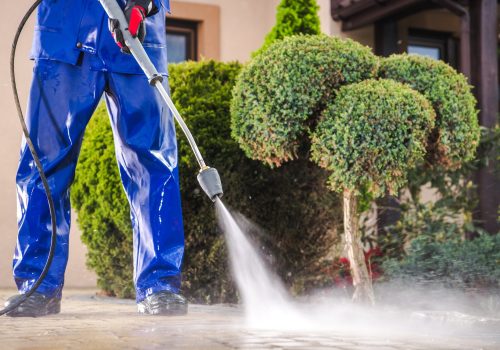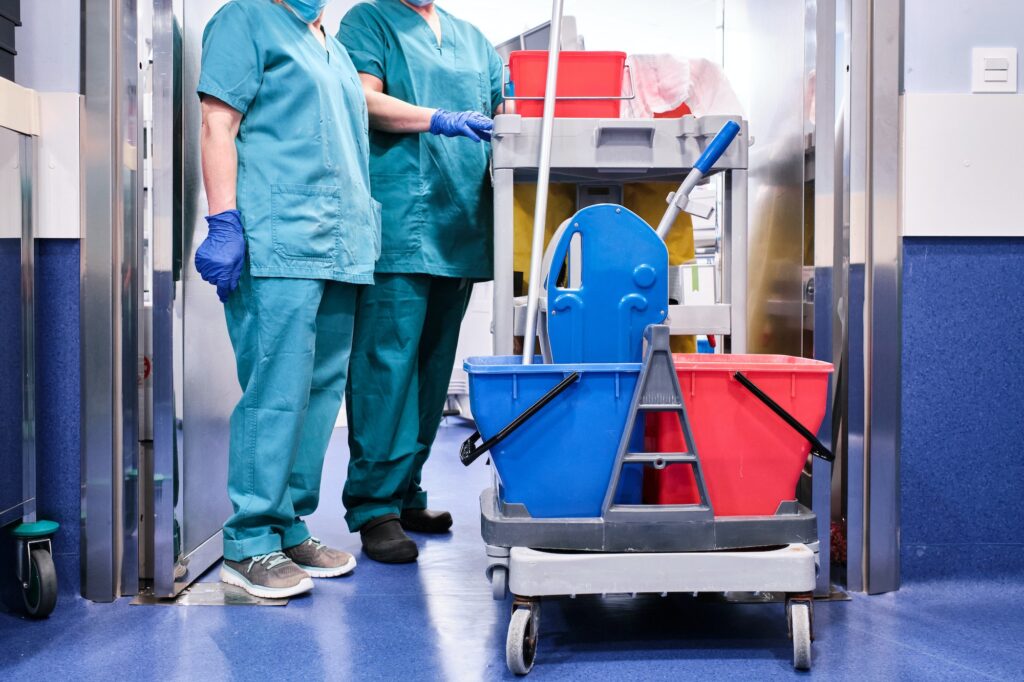The Differences Between Residential and Commercial Cleaning Services: What You Need to Know
Since 2011, the cleaning industry has experienced an annual growth rate of 6.6%. (1) That’s quite a jump for a good reason. People are taking cleanliness seriously. When it comes to cleaning services, there are two main types – residential and commercial. While they may seem similar at first glance, there are quite a few differences between them.
Scope of Work
One of the most significant differences between residential and commercial cleaning services is the scope of work involved. Residential cleaning typically includes tasks like dusting, vacuuming, mopping, and bathroom and kitchen cleaning.
According to OneDesk, the usage of residential cleaning services is projected to reach 80% of households by 2024. (2) This is due to the fact people are busy. They simply don’t have the time and effort to put in to keep their homes clean. They have decided that their time is best spent elsewhere. Furthermore, they believe that having their homes cleaned by professionals allows them the freedom to enjoy life and other things.
Commercial cleaning does all the same things but on a much larger scale. Most homes just have a couple of bathrooms. However, a commercial building, for example, could have a couple of bathrooms. Furthermore, these typically are equipped with several toilets, sinks, countertops, and stalls to clean and disinfect. There are commercial fixtures to refill for toilet paper and paper towels.
Additionally, commercial areas are subject to many more people. This means, in many cases, they are far dirtier than anything you’d see in a residential setting. Furthermore, unfortunately, people don’t care for these facilities in the same way they would on their own. In fact, quite often, leaving them a complete mess.
Commercial spaces are often larger than residential ones and require specialized equipment for deep cleaning, which can be time-consuming. As a result, commercial cleaners generally have more extensive training in handling complex equipment compared to those who provide residential cleaning services.
Frequency of Cleaning
Another difference between the two types of cleaning services is the frequency of cleanings required. Residential properties typically need weekly or bi-weekly cleanings, while commercial spaces may require daily or weekly cleans, depending on their usage.
For example, a busy office with many employees may need daily cleanings to ensure that all areas remain clean throughout the day. A retail store may only need weekly cleans since fewer people enter its doors every day.

Cost
The cost of residential versus commercial cleaning will also differ significantly due to the scope of work required for each type of service.
Commercial cleaners typically charge more per square foot due to their specialized tools and expertise in handling larger spaces with high-traffic areas. Grandview Research predicts that the worldwide revenue of the commercial cleaning market could hit $468.2 billion by 2027. (3) Residential cleaners tend to charge less because they deal with smaller-sized homes that don’t require as much equipment or manpower needed by commercial cleaners.
However, keep in mind that you’re paying for quality service; if you want your home or business space cleaned thoroughly and efficiently without any hiccups along the way – it’s essential to choose a reputable provider regardless of whether you opt for residential or commercial services.
Liability Insurance Coverage
Another important difference between residential vs. commercial cleaning companies is liability insurance coverage.
Commercial cleaners are required by law to carry liability insurance coverage because they handle large public spaces where accidents can happen frequently. On the other hand, residential cleaners aren’t legally obligated to carry liability insurance coverage. However, many still do so voluntarily since accidents can occur in any setting where people move around on floors that have been cleaned or polished recently.
Cleaning Products Used
Residential and commercial cleaners often use different types of cleaning products. Residential cleaners use more natural, eco-friendly products since they work in a smaller space with fewer people around. In contrast, commercial cleaners may use stronger, industrial-grade chemicals to handle heavy-duty cleaning jobs in large spaces like office buildings or warehouses.
While eco-friendly products may be safer for humans and pets, they may not be as effective at removing tough stains or grime as industrial-strength chemicals. It’s important to discuss any concerns you have about the types of cleaning products used with your chosen cleaning service provider.
Time of Day Cleaning is Done
Residential cleaners generally work during regular business hours, while most commercial cleaners work outside of regular business hours. This is because it’s easier to clean a space without disrupting employees or customers who are using the facility.
Commercial cleaners typically work overnight or early morning shifts to clean up before the start of the next business day. Residential cleaners usually work during the day when homeowners are away at work or running errands.
Size of Cleaning Teams
The size of cleaning teams required for residential vs. commercial spaces can also differ significantly. Residential properties typically require one or two cleaners, while commercial properties may need multiple teams working simultaneously to get everything done in a timely manner.
This is because larger spaces require more manpower and specialized equipment, such as floor buffers or pressure washers, which need to be operated by trained professionals.
Customization Options
When it comes to customization options, residential cleaners often have more flexibility than their commercial counterparts. This is because each home has unique needs based on its size, layout, and furnishings. For example, some homes may require extra attention paid to specific areas like bathrooms or kitchens, while others may need help with organizing cluttered rooms like basements or garages.
Commercial spaces tend to have less variation in terms of their cleaning requirements since they’re designed for specific purposes, like retail stores, restaurants, or offices, where certain areas, such as break rooms, restrooms, and shared spaces, are used frequently by employees and customers alike.
Contract Lengths
Contract lengths can vary greatly between residential and commercial cleaning services. Residential contracts are often shorter term. These are typically six months to a year since homeowners can easily switch providers if they’re unhappy with the service.
Commercial contracts tend to be longer-term. You can expect anywhere from one year up to several years. This depends on the size of the property being cleaned. This is in part because businesses want consistency in their services. They are looking for, over time, for their facilities to remain clean and well-maintained regardless of staff turnover within their organization.
Choose Steel and Propre
When choosing between a residential or commercial cleaner, it’s important to consider various factors.
These include the size and type of property you need cleaning (such as an apartment versus a retail store), the frequency of cleanings required (daily or weekly), and the costs associated with each type of service provider, including labor rates and necessary materials and supplies. Additionally, it’s important to consider the liability insurance coverage provided by each company before making your final decision.
By keeping these factors in mind while choosing a professional cleaner, such as Steel and Propre, for your property – you’ll be able to make an informed decision that meets both your financial needs as well as cleanliness requirements for any given space. Contact us at Steel and Propre today if you are looking for an insured, professional commercial cleaning company to take care of your business’s needs.
Get a Free Quote
If you’re looking for a commercial carpet cleaning service provider that offers experience, reliability, customized solutions, and environmentally friendly practices, look no further than Steel and Propre. Contact us today to learn more about our services and how we can help you keep your facility clean and well-maintained.




